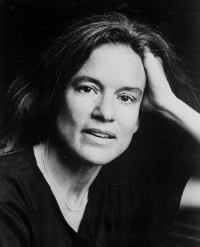Flirting With Faschism
June 30, 2003 issueCopyright © 2003 The American Conservative
Flirting with Fascism
Neocon theorist Michael Ledeen draws more from Italian fascism than from the American Right.
By John Laughland
On the antiwar Right, it has been customary to attack the warmongering neoconservative clique for its Trotskyite origins. Certainly, the founding father of neoconservatism, Irving Kristol, wrote in 1983 that he was “proud” to have been a member of the Fourth International in 1940. Other future leading lights of the neocon movement were also initially Trotskyites, like James Burnham and Max Kampelman—the latter a conscientious objector during the war against Hitler, a status that Evron Kirkpatrick, husband of Jeane, used his influence to obtain for him. But there is at least one neoconservative commentator whose personal political odyssey began with a fascination not with Trotskyism, but instead with another famous political movement that grew up in the early decades of the 20th century: fascism. I refer to Michael Ledeen, leading neocon theoretician, expert on Machiavelli, holder of the Freedom Chair at the American Enterprise Institute, regular columnist for National Review—and the principal cheerleader today for an extension of the war on terror to include regime change in Iran.
Ledeen has gained notoriety in recent months for the following paragraph in his latest book, The War Against the Terror Masters. In what reads like a prophetic approval of the policy of chaos now being visited on Iraq, Ledeen wrote,
Creative destruction is our middle name, both within our own society and abroad. We tear down the old order every day, from business to science, literature, art, architecture, and cinema to politics and the law. Our enemies have always hated this whirlwind of energy and creativity, which menaces their traditions (whatever they may be) and shames them for their inability to keep pace. Seeing America undo traditional societies, they fear us, for they do not wish to be undone. They cannot feel secure so long as we are there, for our very existence—our existence, not our politics—threatens their legitimacy. They must attack us in order to survive, just as we must destroy them to advance our historic mission.
This is not the first time Ledeen has written eloquently on his love for “the democratic revolution” and “creative destruction.” In 1996, he gave an extended account of his theory of revolution in his book, Freedom Betrayed — the title, one assumes, is a deliberate reference to Trotsky’s Revolution Betrayed. Ledeen explains that “America is a revolutionary force” because the American Revolution is the only revolution in history that has succeeded, the French and Russian revolutions having quickly collapsed into terror. Consequently, “[O]ur revolutionary values are part of our genetic make-up. … We drive the revolution because of what we represent: the most successful experiment in human freedom. … We are an ideological nation, and our most successful leaders are ideologues.” Denouncing Bill Clinton as a “counter-revolutionary” (!), Ledeen is especially eager to make one point: “Of all the myths that cloud our understanding, and therefore paralyze our will and action, the most pernicious is that only the Left has a legitimate claim to the revolutionary tradition.”
Ledeen’s conviction that the Right is as revolutionary as the Left derives from his youthful interest in Italian fascism. In 1975, Ledeen published an interview, in book form, with the Italian historian Renzo de Felice, a man he greatly admires. It caused a great controversy in Italy. Ledeen later made clear that he relished the ire of the left-wing establishment precisely because “De Felice was challenging the conventional wisdom of Italian Marxist historiography, which had always insisted that fascism was a reactionary movement.” What de Felice showed, by contrast, was that Italian fascism was both right-wing and revolutionary. Ledeen had himself argued this very point in his book, Universal Fascism, published in 1972. That work starts with the assertion that it is a mistake to explain the support of fascism by millions of Europeans “solely because they had been hypnotized by the rhetoric of gifted orators and manipulated by skilful propagandists.” “It seems more plausible,” Ledeen argued, “to attempt to explain their enthusiasm by treating them as believers in the rightness of the fascist cause, which had a coherent ideological appeal to a great many people.” For Ledeen, as for the lifelong fascist theoretician and practitioner, Giuseppe Bottai, that appeal lay in the fact that fascism was “the Revolution of the 20th century.”
Ledeen supports de Felice’s distinction between “fascism-movement” and “fascism-regime.” Mussolini’s regime, he says, was “authoritarian and reactionary”; by contrast, within “fascism-movement,” there were many who were animated by “a desire to renew.” These people wanted “something more revolutionary: the old ruling class had to be swept away so that newer, more dynamic elements—capable of effecting fundamental changes—could come to power.” Like his claim that the common ground between Nazism and Italian fascism was “exceedingly minimal”—Ledeen writes, “The fact of the Axis Pact should not be permitted to become the overriding consideration in this analysis”—Ledeen’s careful distinction between fascist “regime” and “movement” makes him a clear apologist for the latter. “While ‘fascism-movement’ was overcome and eventually suppressed by ‘fascism-regime,’” he explains, “fascism nevertheless constituted a political revolution in Italy. For the first time, there was an attempt to mobilize the masses and to involve them in the political life of the country.” Indeed, Ledeen criticizes Mussolini precisely for not being revolutionary enough. “He never had enough confidence in the Italian people to permit them a genuine participation in fascism.” Ledeen therefore concurs with the fascist intellectual, Camillo Pellizi, who argues—in a book Ledeen calls “a moving and fundamental work”—that Mussolini’s was “a failed revolution.” Pellizzi had hoped that “the new era was to be the era of youthful genius and creativity”: for him, Ledeen says, the fascist state was “a generator of energy and creativity.” The purest ideologues of fascism, in other words, wanted something very similar to that which Ledeen himself wants now, namely a “worldwide mass movement” enabling the peoples of the world, “liberated” by American militarism, to participate in the “greatest experiment in human freedom.” Ledeen wrote in 1996, “The people yearn for the real thing—revolution.”
Ledeen was especially interested in the role played by youth in Italian fascism. It was here that he detected the movement’s most exciting revolutionary potential. The young Ledeen wrote that those who exalted the position of youth in the fascist revolution—like those who argued in favor of his beloved “universal fascism”—were committed to exporting Italian fascism to the whole world, an idea in which Mussolini was initially uninterested. When he was later converted to it, Mussolini said that fascism drew on the universalist heritage of Rome, both ancient and Catholic. No doubt Ledeen thinks that the new Rome in Washington has the same universalist mission. He writes that people around Berto Ricci—the editor of the fascist newspaper L’Universale, and a man he calls “brilliant” and “an example of enthusiasm and independence”— “called for the formation of a new empire, an empire based not on military conquest but rather on Italy’s unique genius for civilization. … They intended to develop the traditions of their country and their civilization in such a manner as to make them the basic tenets of a new world order.” Ledeen adds, in a passage that anticipates his later love of creative destruction, “Clearly the act of destruction which would produce the flowering of the new fascist hegemony would sweep away the present generation of Italians, along with the rest.” And Giuseppe Bottai, to whom Ledeen attributes “considerable energy and autonomy,” was notable for his belief that “the infusion of the creative energies of a new generation was essential” for the fascist revolution. Bottai “implored the young … to found a new order arising from the spontaneous activity of their creation.”
One of the greatest exponents of such youthful vitalism was the high priest of fascism, the poet and adventurer Gabriele D’Annunzio, to whom Ledeen devoted an enthusiastic biography in 1977. Years ago, I visited D’Annunzio’s house on the shores of Lake Garda: there is a battleship in the garden and a Brenn gun in the sitting room. D’Annunzio was an eccentric and militaristic Italian Nietzschean who “eulogized rape and acts of savagery” committed by the people he called his spiritual ancestors. The poet was also an early prophet of military intervention and regime change: he invaded the Croatian city of Fiume (now Rijeka) in 1919 and held the city for a year, during which he put into practice his theories of “New Order.” In 1918, moreover, D’Annunzio had dropped propaganda leaflets over Vienna promising to liberate the Austrians from their own government, something Ledeen hails as “a glorious gesture.” D’Annunzio’s watchword was “the liberation of human personality.” “His heroism during the war made it possible,” Ledeen writes, “to bridge the chasm between intellectuals and the masses. … The revolt D’Annunzio led was directed against the old order of Western Europe, and was carried out in the name of youthful creativity and virility.”
As Ledeen shows, the Italian fascists expressed their desire “to tear down the old order” (his words from 2002) in terms that are curiously anticipatory of a famous statement in 2003 by the Defense Secretary, Donald Rumsfeld. In 1932, Asvero Gravelli also divided Europe into “old” and “new” when he wrote, in Towards the Fascist International, “Either old Europe or young Europe. Fascism is the gravedigger of old Europe. Now the forces of the Fascist International are rising.” It all sounds rather prophetic. ____________________________________________________John Laughland is a London-based writer and lecturer and a trustee of the British Helsinki Human Rights Group.
June 30, 2003 issueCopyright © 2003 The American Conservative
postamble();






